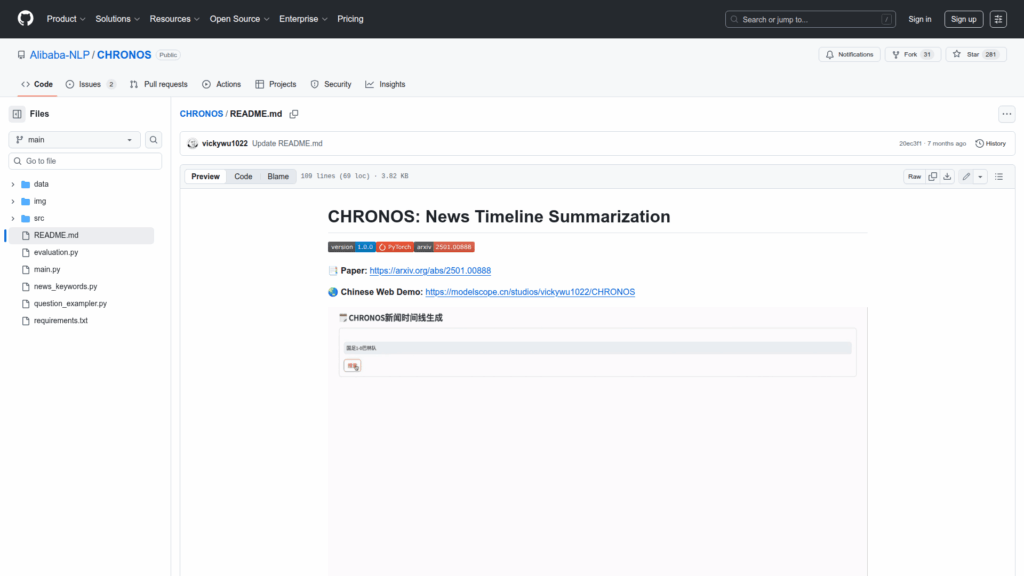CHRONOS
Basic Information
CHRONOS is a research codebase and dataset release for open-domain news timeline summarization. The project proposes a retrieval-based method that iteratively poses questions about a topic and retrieved documents to generate chronological summaries. The repository includes the Open-TLS dataset for long-duration, up-to-date timeline tasks, example question pools, and runnable scripts to reproduce experiments. It provides instructions to install Python requirements, generate example questions with question_exampler.py, and run the main pipeline with main.py to retrieve news, generate timelines, and produce evaluation scores. The README documents required API keys for LLMs and web search and points to an associated paper and a web demo. The code is intended to enable reproducible experiments and evaluation on open-domain timeline summarization tasks.








